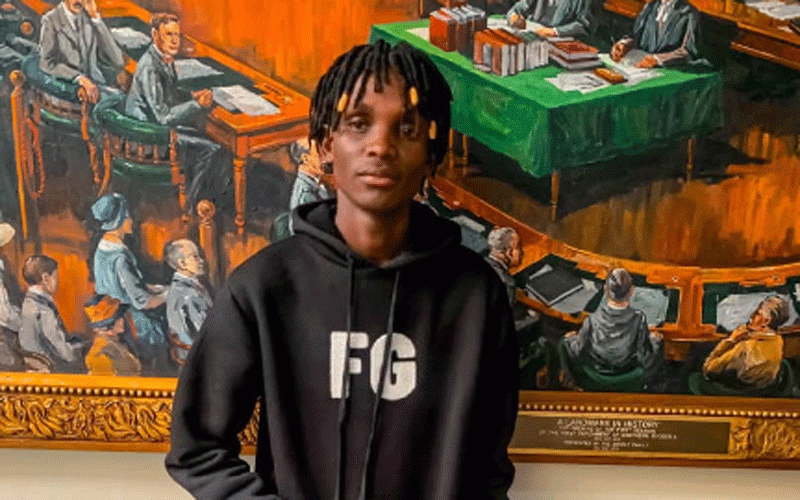
Bulawayo — In the township of Pumula, often overlooked in Zimbabwe’s cultural and social landscape, Happy Mpofu is redefining the role of the arts in community development.
As the founder and director of Home of Arts Entertainment and the Pumula Royal Arts and Community Awards (PRACAs), Mpofu envisions the arts not merely as entertainment but as a powerful vehicle for education, empowerment, and social transformation.
Through his work, he demonstrates that creative expression can intersect meaningfully with civic engagement, economic opportunity, and youth development.
“The arts are more than performances or shows,” Mpofu explains, reflecting on his lifelong dedication to community upliftment. “They are a tool for education, advocacy, and empowerment. Through edutainment, we address social issues, nurture talent, and cultivate resilience among young people. It is about opening doors where none exist and reshaping mindsets, particularly in communities that have been historically marginalized.”
Mpofu’s mission is deeply personal. Growing up in Pumula, he witnessed firsthand vibrancy of local talent and the structural barriers that stifle it.
Young people in the township often bristle with creativity and ambition but have limited platforms to showcase their skills, minimal mentorship opportunities, and little recognition beyond their immediate communities.
This gap inspired Mpofu to establish platforms that not only nurture artistic talent but also provide pathways for social and economic empowerment. “Promoting the arts in Pumula allows youth to claim their space, articulate their stories, and gain recognition beyond their locality. It challenges the assumption that excellence only comes from urban centers or elite institutions,” he asserts.
Mpofu’s initiatives are wide-ranging and strategically designed to address both individual and community development. The King and Queen of Pumula (2022) celebrated fashion and culture, providing young people with exposure and networking opportunities that had previously been inaccessible. The Bulawayo Key to the City Arts Festival focused on equipping artists with essential skills in business, marketing, and branding—knowledge often overlooked in Zimbabwe’s creative industries.
- Revisiting Majaivana’s last show… ‘We made huge losses’
- Edutainment mix: The nexus of music and cultural identity
- ChiTown acting mayor blocks election
- Promoter Mdu 3D defends foreigners 30 minute set
Keep Reading
The Home of Arts Youth Business Expo connected artists with entrepreneurs and professionals, creating a space where creativity and commerce intersect. Meanwhile, the Pumula Royal Arts and Community Awards (PRACAs) have become a prestigious annual event, recognizing outstanding contributions to arts and community development and elevating local achievements to national attention.
The impact of these initiatives extends beyond individual recognition. By fostering social cohesion and civic engagement, Mpofu’s work addresses broader community challenges. His programs promote collaboration among young people from diverse backgrounds, encourage mentorship and peer learning, and create a sense of collective pride.
In doing so, Mpofu illustrates a central critique of traditional development models: that economic or infrastructural growth alone is insufficient if cultural expression and community agency are ignored. His work positions the arts as a strategic lever for sustainable development, capable of building both human and social capital.
Collaboration has been another cornerstone of Mpofu’s approach. Through his work with Yellow World, he has amplified youth voices and strengthened the intersection between arts, education, and social accountability. Together, they implement projects that uncover hidden talent while promoting civic education, community engagement, and social responsibility. These partnerships reflect an understanding that sustainable transformation requires networks, collective resources, and shared vision, reinforcing that grassroots creativity is most powerful when supported by strategic alliances.
Despite these successes, Mpofu’s initiatives are not without challenges. Limited funding, inadequate infrastructure, and insufficient policy support remain significant barriers to growth in Zimbabwe’s arts sector. Many talented youth struggle to reconcile creative ambitions with socio-economic survival, while systemic inequalities can inhibit access to mentorship, training, and visibility. Mpofu is candid about these difficulties, noting that such challenges are both obstacles and motivators. “These challenges push me to innovate constantly and advocate for stronger support systems for our creative community,” he says.
Mpofu’s work also speaks to the transformative power of the arts in fostering resilience and leadership among young people. Each initiative he launches is designed to inspire confidence, nurture leadership, and cultivate civic consciousness. The arts, in his vision, are not only a platform for talent but also a medium through which young people learn negotiation, communication, collaboration, and entrepreneurial skills—qualities that extend far beyond performance spaces and into broader societal participation.
Looking forward, Mpofu’s vision for Pumula is ambitious.
He imagines a township where creative talent is nurtured systematically, where arts and culture are recognized as engines of economic and social development, and where youth are empowered to shape their own futures. Through Home of Arts Entertainment and PRACAs, Mpofu is building sustainable platforms that allow young creatives to excel individually while uplifting their communities collectively. His work demonstrates that with vision, mentorship, and strategic engagement, the arts can transcend performance—they can become a potent instrument for social transformation and community resilience.
In a country where systemic challenges often overshadow opportunity, Happy Mpofu stands as a reminder that creativity, when strategically nurtured, can redefine both individual lives and community trajectories.
His story illustrates that grassroots leadership in the arts is not merely about talent promotion but about fostering social change, nurturing hope, and building communities capable of thriving against the odds. In Pumula, the arts are no longer peripheral—they are central to empowerment, social cohesion, and the pursuit of sustainable development.
*Raymind Millagre Langa is a Zimbabwean musician, poet, and orator whose work blends artistic expression with social commentary, highlighting cultural identity and community issues. As the founder of Indebo Edutainment, he uses his talents to educate, inspire, and empower audiences through music, performance, and literary arts.










